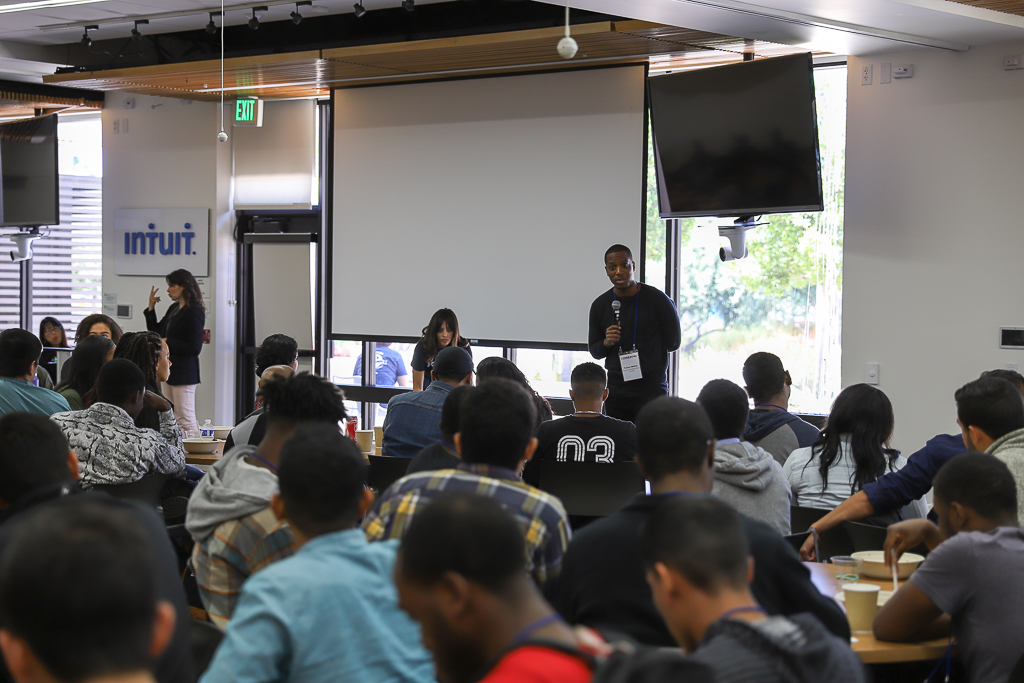
GET THE FACTS
Why racial equity in tech?
2040 is the beginning of the decade when the United States will become majority Black and Latinx. Black and Latinx people will make up nearly 40% of the US population. As this demographic shift takes place, the tech industry is radically transforming our economy and society, ushering changes not yet seen since the second industrial revolution.
Black and Latinx people are currently being excluded from the innovation economy at alarming rates. While Black and Latinx people earn nearly 20% of computer science Bachelor’s Degrees, they make up only around 5% of the technical workforce at top tech companies. Only 2-5.3% of tech executives are Black and 3.1-5.3% are Latinx. We can and must do better!
We are in a unique moment in time. As Black and Latinx people become the majority and tech shapes how we interact with money, information, and each other, racial equity in tech is not just about access to jobs but about access to power. Being shut out of tech means being shut out of the new rules of power, which has negative consequences on Black and Latinx people, tech, and the country.
Why the Innovation Economy?
The Innovation Economy is a broad term that includes the tech sector as well as the subset of organizations within other sectors whose reliance on and leveraging of technology to deliver products and/or services comprises a substantial portion of their business model. We are focusing on the Innovation Economy as a path to catalyze broader change because we believe it will be the vanguard for achieving racial equity across the economy as a whole:
The Innovation Economy has a unique capacity to innovate around racial equity in the workplace. Due to its inherent capacity to innovate as well as its appreciation for experimentation, data-driven decision making, and failing forward, the Innovation Economy embraces change more quickly than many other sectors. There is also an overall shortage of technical talent, creating a scenario where companies in the Innovation Economy are open to innovating in order to gain access to more tech talent.
The Innovation Economy will eventually “eat the world,” thus spreading its practices. The Innovation Economy today is a subset of the broader economy, but by 2040, as technology continues to change the way be work and live, all industries will be driven or enabled by technology. Rather than being absorbed into existing ways of doing things, the Innovation Economy tends to disrupt, and this includes in policies and practices around talent. As a result, the changes that take place in the tech industry’s treatment of talent and pursuit of equity will naturally influence other industries’ policies and practices over time.
The Innovation Economy’s products, platforms, and services are architecting our new societal norms. The sector is rapidly infiltrating all aspects of our lives as citizens and consumers, and as it does it is architecting broad societal norms. Ensuring that Black and Latinx people are leaders and doers in this space is critical to ensuring that they are empowered and equipped to be not just consumers but creators, not just participants but architects, building an inclusive world that meets their motivations, desires, and needs.
Do we teach people how to code?
No, we do not. Our program participants come from an existing pool of talent—20% of all computer science Bachelor’s Degrees are earned by Black & Latinx people. We work with early-career technologists on professional development, overcoming workplace obstacles like Imposter Syndrome, and connect them to peers and industry leaders so they have the confidence, community, and network to succeed in the tech sector.
